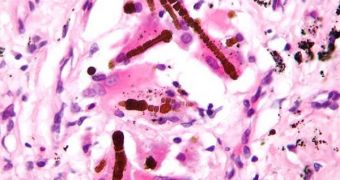A team of experts in the United Kingdom, at the University of Leeds, announces the development of a new vaccine, that they say could be used to treat cancer. The chemical was produced by using a large DNA library, the investigators explain.
Details of the research were recently published in the top journal Nature Medicine. Experts also listed a variety of details about how their approach functions, and also about what makes it so effective.
In essence, the new therapy is a variation of the 'gene therapy' vaccine, which until now used only a single gene to try and boost the activity of the immune system. Now, the Leeds team plans to use a large number of genes to cause a variety of effects.
But these multiple gene fragments – which had the ability to produce many possible antigens – were all put inside a virus, so as to prevent the immune system from going into overdrive. The efficiency of this approach was verified in studies conducted on unsuspecting lab mice.
Thus far, researchers have tried to elaborate on this approach, but with poor results. In some cases, the genes caused a massive response from the immune system, which the test body could not handle.
This is one of the most dangerous aspects of manipulating the immune system. If this is done wrong, then the entire body could be consumed from within. What experts are trying to achieve is the correct balance between stimulation and safety.
At the same time, they need to boost the production of several types of antigens, as each type of cancer cell has different markers on its surface. Balancing all of these aspects in the correct manner has proven extremely difficult to accomplish.
However, Leeds experts managed to take a considerable step forward in this field, when they used engineered viruses as part of their Cancer Research UK (CRUK)-funded research.
“This is the first time we've been able to use a whole library of DNA in a viral vaccine successfully. The biggest challenge in immunology is developing antigens that can target the tumor without causing harm elsewhere,” professor Alan Melcher explains.
“By using DNA from the same part of the body as the tumor, inserted into a virus, we may be able to solve that problem,” concludes the scientist, a coauthor of the new scientific paper.
“Although the vaccine didn't trigger the immune system to overreact and cause serious side effects in mice, it will need to be further developed and tested in humans before we can tell whether this technique could one day be used to treat cancer patients,” CRUK chief clinician Peter Johnson says.

 14 DAY TRIAL //
14 DAY TRIAL //